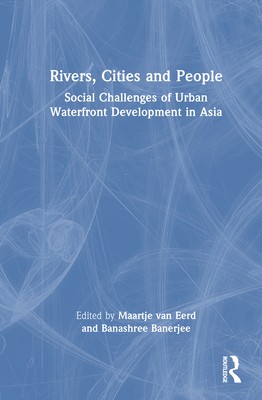
- We will send in 10–14 business days.
- Publisher: Routledge India
- ISBN-10: 1032291516
- ISBN-13: 9781032291512
- Format: 15.6 x 23.4 x 1.6 cm, hardcover
- Language: English
- SAVE -10% with code: EXTRA
Urban River Restoration and Waterfront Development in Asian Cities (e-book) (used book) | bookbook.eu
Reviews
Description
The book looks at recent initiatives for river restoration and riverfront intended to contribute to making Asian cities clean, resilient and investment worthy. It uses an interdisciplinary perspective to assert that insufficient consideration of social issues in the planning and management of urban riverscapes leads to social exclusion. Utilising diverse entry points and theoretical orientations, every chapter of the volume contributes to the exploration of the way urban river restoration is entwined with questions around urban citizenship, violation of international housing rights, poverty and vulnerability, livelihoods, and the use of common property resources. It explores the social aspects of well-known cases and examples of river restoration projects from Asian megacities such as Lahore, Dhaka, Chennai, Ahmedabad, Bangkok, Manila, and secondary cities in India. While touching on the technical, ecological, and recreational aspects of urban river restoration and riverfront development, the book focuses upon social issues related to displacement, contestations around land and water, the right to adequate housing and the interconnected rights to livelihoods, health, and food security.
Enriched with empirical evidence and theoretical underpinnings, this book will be useful for students, teachers and researchers of urban studies, urban geography, urban planning, urban ecology, sociology, community development, and policy and governance. It will also provide valuable case material for practitioners in those disciplines.
EXTRA 10 % discount with code: EXTRA
The promotion ends in 20d.10:14:03
The discount code is valid when purchasing from 10 €. Discounts do not stack.
- Publisher: Routledge India
- ISBN-10: 1032291516
- ISBN-13: 9781032291512
- Format: 15.6 x 23.4 x 1.6 cm, hardcover
- Language: English English
The book looks at recent initiatives for river restoration and riverfront intended to contribute to making Asian cities clean, resilient and investment worthy. It uses an interdisciplinary perspective to assert that insufficient consideration of social issues in the planning and management of urban riverscapes leads to social exclusion. Utilising diverse entry points and theoretical orientations, every chapter of the volume contributes to the exploration of the way urban river restoration is entwined with questions around urban citizenship, violation of international housing rights, poverty and vulnerability, livelihoods, and the use of common property resources. It explores the social aspects of well-known cases and examples of river restoration projects from Asian megacities such as Lahore, Dhaka, Chennai, Ahmedabad, Bangkok, Manila, and secondary cities in India. While touching on the technical, ecological, and recreational aspects of urban river restoration and riverfront development, the book focuses upon social issues related to displacement, contestations around land and water, the right to adequate housing and the interconnected rights to livelihoods, health, and food security.
Enriched with empirical evidence and theoretical underpinnings, this book will be useful for students, teachers and researchers of urban studies, urban geography, urban planning, urban ecology, sociology, community development, and policy and governance. It will also provide valuable case material for practitioners in those disciplines.


Reviews